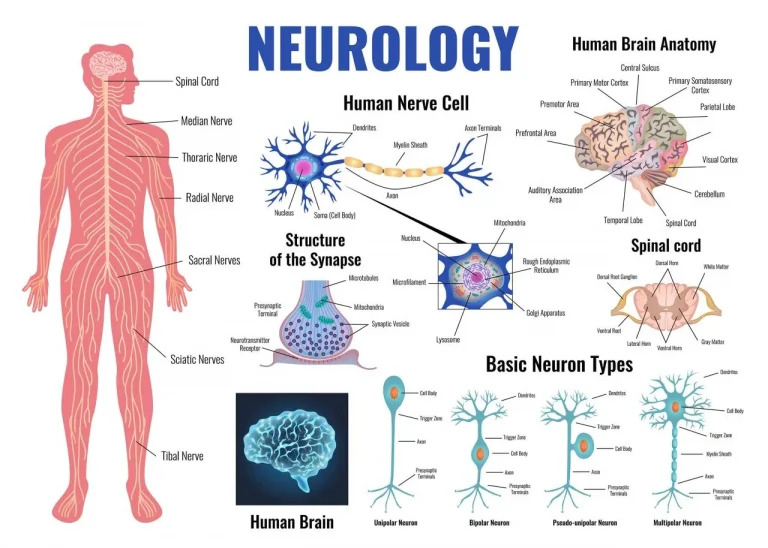Health Science Vs. Public Health: Key Differences Explained
Choosing between careers in health science and public health can be challenging, as both fields offer meaningful work improving lives. While there is some overlap, there are also key distinctions between the two.
If you’re short on time, here’s a quick answer: Health science focuses on clinical areas like medicine and nursing, while public health deals with community-level health promotion and disease prevention.
This comprehensive overview explains the key differences between health science and public health in terms of education, careers, salaries, skills, and day-to-day work.
Educational Requirements
Health Science Degrees
Earning a degree in health science is a great starting point for individuals interested in pursuing a career in the healthcare field. Health science programs typically offer a broad curriculum that covers various aspects of human health and wellness.
The educational requirements for health science degrees can vary depending on the specific program and institution. However, most programs require students to complete foundational courses in biology, anatomy, physiology, chemistry, and psychology.
Some health science programs also offer specialized tracks or concentrations in areas such as nutrition, exercise science, or healthcare administration. These concentrations allow students to focus their studies on specific areas of interest and gain specialized knowledge and skills.
In addition to coursework, students may also be required to complete internships or clinical rotations to gain practical experience in the field.
Public Health Degrees
Public health degrees, on the other hand, focus on the population as a whole and aim to improve the overall health and well-being of communities. Public health professionals work to prevent disease, promote healthy behaviors, and address health disparities through various methods such as research, education, and policy development.
Educational requirements for public health degrees typically include a bachelor’s degree in public health or a related field, such as biology or social sciences. Many universities also offer master’s and doctoral programs in public health for those seeking advanced positions or specialized knowledge in specific areas of public health.
Coursework in public health programs covers a range of topics, including epidemiology, biostatistics, environmental health, health policy, and social and behavioral sciences. Students also have the opportunity to gain practical experience through internships or fieldwork, which allows them to apply their knowledge and skills in real-world settings.
Comparison
While both health science and public health degrees focus on improving health outcomes, their educational requirements differ. Health science degrees tend to have a broader focus on individual health and wellness, while public health degrees have a more population-oriented approach.
Health science programs often require coursework in specific sciences, such as biology and chemistry, while public health programs emphasize topics like epidemiology and health policy.
It’s important to note that the specific educational requirements can vary between programs and institutions. Therefore, it is advisable for individuals interested in pursuing a degree in either health science or public health to research and review the curriculum and admission requirements of the specific program they are interested in.
Career Paths and Salaries
Health Science Careers
Health science careers encompass a wide range of professions that focus on the study and improvement of human health. Some popular career paths in health science include:
- Medical Technologist
- Physical Therapist
- Occupational Therapist
- Biomedical Scientist
- Pharmacist
These professionals work in various settings such as hospitals, research laboratories, rehabilitation centers, and pharmaceutical companies. They play a crucial role in diagnosing and treating illnesses, conducting research, and developing new medical technologies.
Public Health Careers
Public health careers, on the other hand, are focused on improving the overall health of communities and populations. Professionals in this field work to prevent diseases, promote healthy lifestyles, and create policies that enhance public well-being. Some common public health career paths include:
- Public Health Educator
- Epidemiologist
- Health Policy Analyst
- Community Health Worker
- Environmental Health Specialist
Public health professionals often work for government agencies, non-profit organizations, and international health organizations. They tackle issues such as infectious diseases, substance abuse, environmental hazards, and social determinants of health.
Salary Differences
The salaries in health science and public health can vary depending on factors such as education, experience, location, and job responsibilities. Generally, health science careers tend to have higher earning potential compared to public health careers.
For example, medical technologists can earn an average salary of $60,000 per year, while public health educators may earn around $45,000 per year.
However, it’s important to note that salary should not be the sole determining factor when choosing a career path. Both health science and public health offer fulfilling and meaningful work that contribute to the well-being of individuals and communities.
Day-to-Day Work Contrasts
Health Science Work Duties
In the field of health science, professionals are primarily focused on conducting research, analyzing data, and developing new medical treatments and technologies. They work in laboratories, hospitals, and research institutions, often collaborating with other scientists and healthcare professionals.
Health science professionals may conduct experiments, analyze samples, and interpret data to uncover patterns and make scientific advancements.
For example, a health science researcher might study the effects of a specific medication on a particular disease, conduct clinical trials to test the efficacy of a new treatment, or analyze genetic data to identify potential risk factors for certain diseases.
Health science professionals may also work in academia, teaching and mentoring students, or in the pharmaceutical industry, developing and testing new drugs.
Public Health Work Duties
On the other hand, professionals in the field of public health focus on the overall health and well-being of communities and populations. They work to prevent diseases, promote healthy lifestyles, and improve access to healthcare services.
Public health professionals often work for government agencies, non-profit organizations, or international health organizations.
Public health professionals may develop and implement public health programs and policies, conduct epidemiological studies to identify health trends and risk factors, and collaborate with various stakeholders to address health disparities and promote health equity.
For example, a public health professional might design and implement a vaccination campaign to prevent the spread of a contagious disease, conduct community health assessments to identify health needs and priorities, or advocate for policies that promote healthy behaviors, such as tobacco control or nutrition programs.
Public health professionals also play a crucial role in emergency preparedness and response, ensuring that communities are ready to handle public health crises such as natural disasters or infectious disease outbreaks.
It’s important to note that while health science and public health have different focuses, they often collaborate and complement each other in improving overall health outcomes. Health science research provides the foundation for evidence-based practices in public health, while public health interventions help translate research findings into effective policies and programs for the benefit of communities.
Skills and Abilities Needed
Health Science Skills
Health science is a multidisciplinary field that encompasses a wide range of skills and abilities. Professionals in health science need to have a solid foundation in biology, anatomy, and physiology. They should be able to understand complex medical concepts and apply them to real-world situations.
Additionally, skills in research and data analysis are crucial in health science. Being able to gather and interpret data allows health science professionals to make informed decisions and contribute to advancements in the field.
Furthermore, communication skills are essential in health science. Being able to effectively communicate with patients, colleagues, and other healthcare professionals is crucial for providing quality care.
Health science professionals should be able to explain medical information in a clear and concise manner, making it easier for patients to understand their conditions and treatment options.
Hands-on skills are also important in health science. Proficiency in performing various medical procedures, such as taking blood samples or administering medication, is necessary for providing direct patient care.
Additionally, health science professionals should possess critical thinking and problem-solving abilities to make accurate diagnoses and develop appropriate treatment plans.
Public Health Skills
Public health focuses on improving the overall health and well-being of communities and populations. Professionals in public health need a different set of skills compared to those in health science.
One of the key skills in public health is epidemiology. Epidemiologists study patterns and causes of diseases in populations, allowing them to identify risk factors and develop strategies for prevention and control.
They use statistical analysis to understand the impact of diseases on communities, which helps in making evidence-based decisions.
Another important skill in public health is health promotion and education. Public health professionals should be able to develop and implement health education programs that target specific populations.
These programs aim to raise awareness about healthy behaviors, promote disease prevention, and encourage individuals to make positive lifestyle changes.
Policy development and advocacy are also integral to public health. Professionals in this field work to create policies that promote public health and address social determinants of health. They advocate for changes in healthcare systems, environmental regulations, and social policies to improve the overall health of communities.
Collaboration and teamwork are essential skills in public health. Public health professionals often work with diverse teams, including healthcare providers, policymakers, community leaders, and researchers.
Being able to effectively collaborate and communicate with these stakeholders is crucial for implementing public health interventions and programs.
Key Differences in Focus
Health Science Focus
In the field of health science, the primary focus is on understanding the human body and its various systems. Health science professionals, such as doctors, nurses, and researchers, work to study, diagnose, and treat diseases and injuries.
They delve into the intricacies of the human anatomy and physiology, conducting experiments and clinical trials to find new treatments and therapies. Health science professionals often work in hospitals, clinics, and research laboratories, applying their knowledge to improve individual patient care.
For example, a health scientist might conduct research on the effectiveness of a new drug in treating a specific disease. They would analyze data, perform experiments, and interpret results to determine if the drug shows promise for improving patient outcomes.
This focus on the individual and the treatment of specific conditions sets health science apart from public health.
Public Health Focus
Public health, on the other hand, takes a broader approach to improving the health and well-being of communities and populations. Public health professionals focus on preventing disease and promoting health at a population level.
They analyze data, identify trends, and develop interventions to address public health concerns.
Public health professionals work to create policies and programs that promote healthy behaviors, prevent the spread of diseases, and improve overall community health. They may work in government agencies, non-profit organizations, or research institutions, collaborating with various stakeholders to implement strategies for health promotion.
For instance, a public health professional might analyze data on the prevalence of obesity in a specific community. Based on their findings, they might develop a program that encourages healthy eating and physical activity, targeting the entire community.
This emphasis on prevention and community-level interventions sets public health apart from the individual-focused approach of health science.
It is important to note that while health science and public health have different focuses, they are not mutually exclusive. In fact, they often complement each other, with health science providing the foundation for understanding the human body and public health applying that knowledge to improve population health.
Conclusion
While health science and public health both aim to improve wellbeing, health science centers on treating individuals, while public health focuses on population-level health promotion and disease prevention.
Understanding the key distinctions can help students choose the right educational path and career direction in these fulfilling fields dedicated to helping others.







